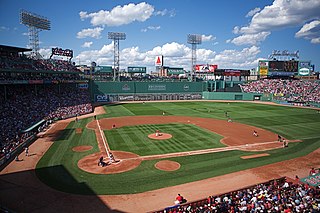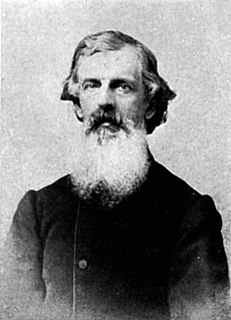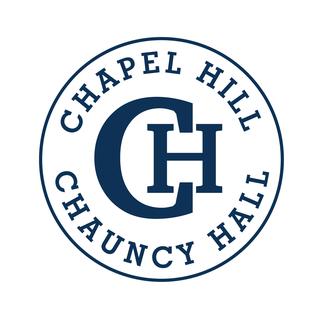Early life and education
He was born in Boston to Edward Francis Tuckerman (1775–1843), a merchant, and Sophia May (1784–1870), a prosperous and distinguished Boston family. [1] His siblings were Edward Tuckerman (1817–1886), the botanist and Amherst professor, Frederick Goddard Tuckerman (1821–1873), the poet, Sophia May (Tuckerman) Eckley, [2] and Hannah Parkman Tuckerman.

Boston is the capital and most populous city of the Commonwealth of Massachusetts in the United States. The city proper covers 48 square miles (124 km2) with an estimated population of 685,094 in 2017, making it also the most populous city in New England. Boston is the seat of Suffolk County as well, although the county government was disbanded on July 1, 1999. The city is the economic and cultural anchor of a substantially larger metropolitan area known as Greater Boston, a metropolitan statistical area (MSA) home to a census-estimated 4.8 million people in 2016 and ranking as the tenth-largest such area in the country. As a combined statistical area (CSA), this wider commuting region is home to some 8.2 million people, making it the sixth-largest in the United States.

Edward Tuckerman was an American botanist and professor who made significant contributions to the study of lichens and other alpine plants. He was a founding member of the Natural History Society of Boston and most of his career was spent at Amherst College. He did the majority of his collecting on the slopes of Mount Washington in the White Mountains of New Hampshire. Tuckerman Ravine was named in his honor. The standard botanical author abbreviation Tuck. is applied to species he described.

Frederick Goddard Tuckerman was an American poet, remembered mostly for his sonnet series. Apart from the 1860 publication of his book Poems, which included approximately two-fifths of his lifetime sonnet output and other poetic works in a variety of forms, the remainder of his poetry was published posthumously in the 20th century. Attempts by several 20th century scholars and critics to spark wider interest in his life and works have met with some success and Tuckerman is now included in several important anthologies of American poetry. Though his works appear in 19th century anthologies of American poetry and sonnets, this reclusive contemporary of Emily Dickinson, sometime correspondent of Nathaniel Hawthorne, Ralph Waldo Emerson and Henry Wadsworth Longfellow, and acquaintance of Alfred, Lord Tennyson, remains in relative obscurity.
He attended Chauncy Hall School in Boston.[ citation needed ] He studied with Charles Zeuner, and was then for several years organist at St. Paul's Church, Boston. He went to England in 1849, and the degree of Mus. Doc. was conferred on him by the Archbishop of Canterbury in 1853. In the preceding year he had received a diploma from the Academy of St. Cecilia in Rome.

Chapel Hill – Chauncy Hall School (CH-CH) is an independent, college preparatory day and boarding school for grades 9 through PG located on a 40-acre campus in Waltham, Massachusetts and founded in 1828. CH-CH is accredited by the New England Association of Schools and Colleges.

Charles Zeuner was an organist and composer active in Germany for a time, and then in Boston and Philadelphia in the United States.












